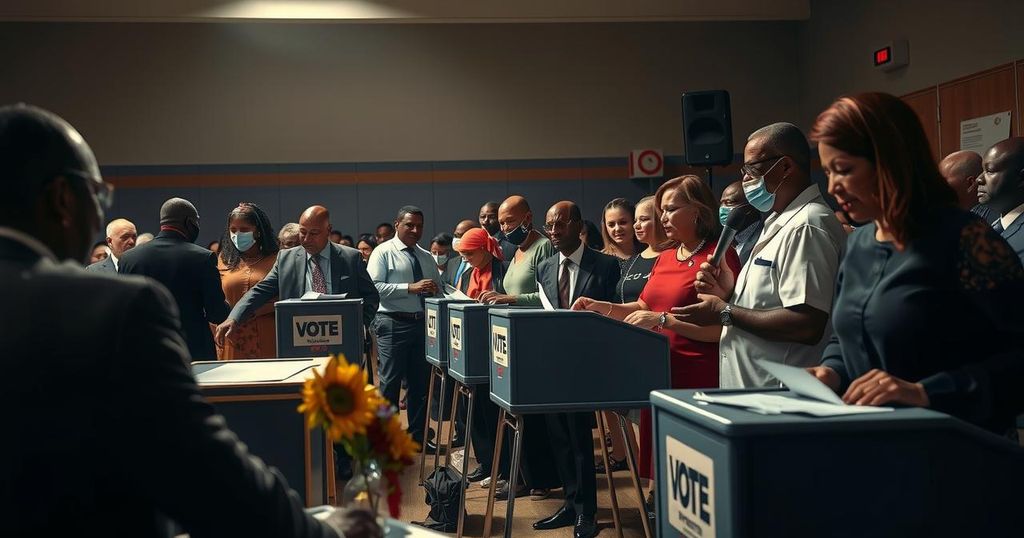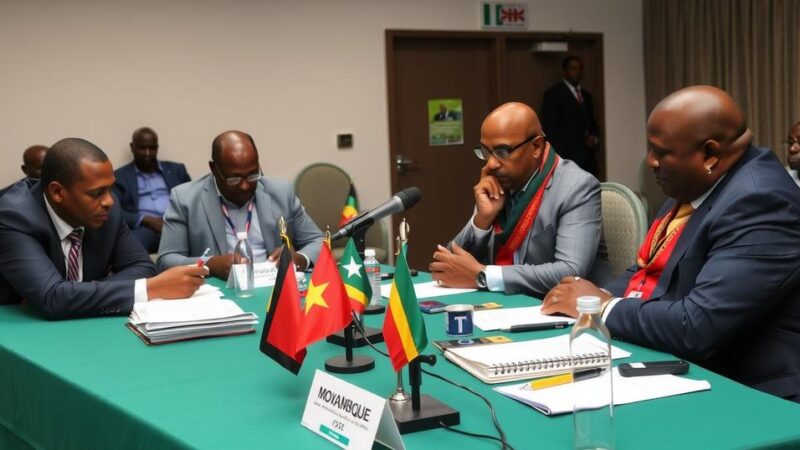Namibia is set for a potentially historic presidential election, with Vice-President Netumbo Nandi-Ndaitwah of Swapo vying against ex-party member Panduleni Itula of IPC. Skewed by declining support for Swapo due to high unemployment and corruption, the election could result in the nation’s first female leader, contingent upon voter sentiment amid calls for political revitalization and tangible economic improvements.
Namibia is poised to potentially elect its first female leader as Vice-President Netumbo Nandi-Ndaitwah of the ruling party, Swapo, faces a challenge from Panduleni Itula of the Independent Patriots for Change (IPC) in the upcoming presidential election. Capitalizing on its long-standing governance since Namibia’s independence in 1990, Swapo seeks to maintain its dominance despite a notable decline in support during recent elections, exacerbated by issues such as high unemployment and corruption.
Nandi-Ndaitwah, who has held various high-ranking governmental positions over the past twenty-five years, is regarded as a steadfast leader with a history rooted in the liberation struggle against apartheid. In contrast, Itula, a former Swapo member and a dentist by profession, represents new political energy, appealing particularly to the youth and those dissatisfied with the status quo.
The rivalry between Nandi-Ndaitwah and Itula is intensified by a shifting political atmosphere in southern Africa, where traditional liberation movements face growing disillusionment. As the election draws near, both candidates must address pressing concerns including youth unemployment, corruption, and public service improvement. With the possibility of a runoff looming, the outcome will likely hinge on who can most effectively inspire trust among the electorate.
The upcoming presidential election in Namibia marks a significant moment in the country’s political landscape, as it presents an opportunity for historical change with the potential election of its first female president. Vice-President Netumbo Nandi-Ndaitwah has been a prominent figure in the ruling Swapo party since its fight against apartheid. In contrast, her main opponent, Panduleni Itula, represents a new opposing force in Namibian politics, capitalizing on a sentiment towards change and revitalization among a disenchanted electorate. The economic backdrop, characterized by high unemployment and allegations of corruption, adds a layer of urgency to the election.
As Namibia approaches a pivotal electoral moment, Vice-President Netumbo Nandi-Ndaitwah stands as a symbol of continuity against the backdrop of a shifting political landscape, while Panduleni Itula embodies a demand for change. The electorate’s choice will crucially pivot on their faith in each candidate’s ability to address urgent national issues, with implications not just for governance but also for broader societal attitudes towards gender and leadership in a traditionally male-dominated environment. Whether Namibia will embrace historic change remains to be seen in the forthcoming election.
Original Source: www.bbc.com







